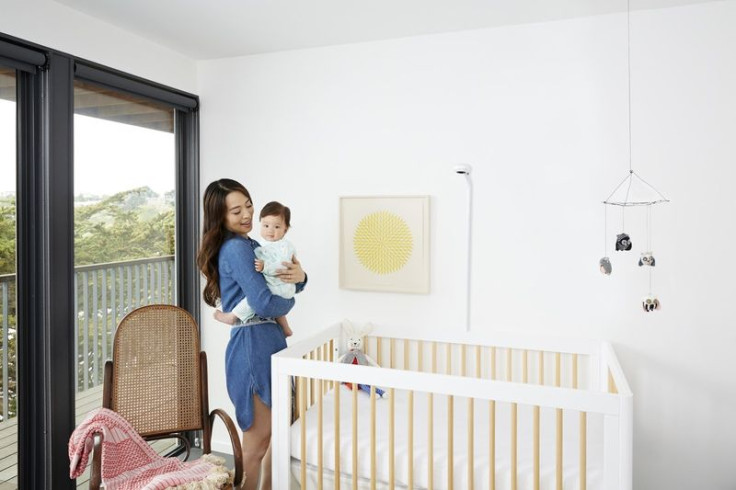New Nanit baby monitor tracks your little one's sleep patterns using computer vision technology

Baby monitors featuring a wide range of functionalities have become essential items for tech-savvy parents looking to make sure their little one is safe and sleeping soundly when they're around the house or asleep in the next room. New York-based Nanit has now launched a device that uses computer vision technology and machine learning to monitor your little one's sleep patterns throughout the night.
Although there are a slew of existing smart baby monitoring wearables that also provide sleep insights, many new parents are wary of attaching devices and technology to their young ones or their clothing. Nanit, however, features an HD night vision camera and motion sensor on a shower head-like stand that gives you a birds-eye perspective over your baby's crib.
It sports a built-in night light, sensors that can measure the room's data including temperature and humidity and can play calming nature sounds or white noise.
The device includes an accompanying Android or iOS app that can give parents daily insights on their baby's sleep metrics, including sleep onset, total hours of sleep, sleep patterns, a heatmap of where your baby moves and even parent interventions. It sends parents a time-lapse video of the previous night to show them when their little one was awake or fussy and can ping parents on their smartphones when the baby is moving or crying.
Co-founded by Dr Assaf Glazer, Tor Ivry and Andrew Berman, the company describes itself as the "Tesla of baby monitors".
"Like most scientists, I'm driven by curiosity. When I had my son four years ago, I really wanted to understand his behavior, make sure he was safe and healthy, and be the best parent to him that I could. And if I could get some sleep while accomplishing all of this, even better," Dr Assaf Glazer said in a statement.
According to a study carried out by Ergoflex in 2013 that examined the sleep patterns of over 1,800 people in the UK, the average new parent gets about 5.1 hours of sleep per night in the first year of their child's life, which equates to a sleep loss of around 44 days a year.
"That's what sparked my idea to apply my experience building intelligent cameras to my struggles at home and create the first baby monitor that can help parents truly connect with and understand their kids. We've added in all of the features that parents like ourselves would want, and we've found that by helping our babies sleep better, we sleep better too."
Over time, the smart device can provide more personalised sleep reports, analysis and even parenting tips based on what it observes.
The smart baby monitor is now available for pre-order for $279 and will bump up to $349 when it ships in September. Nanit's analytics subscription model costs $10 per month, but will be offered at a 50% discount for customers who purchase the one-year package for $50.
© Copyright IBTimes 2025. All rights reserved.





















